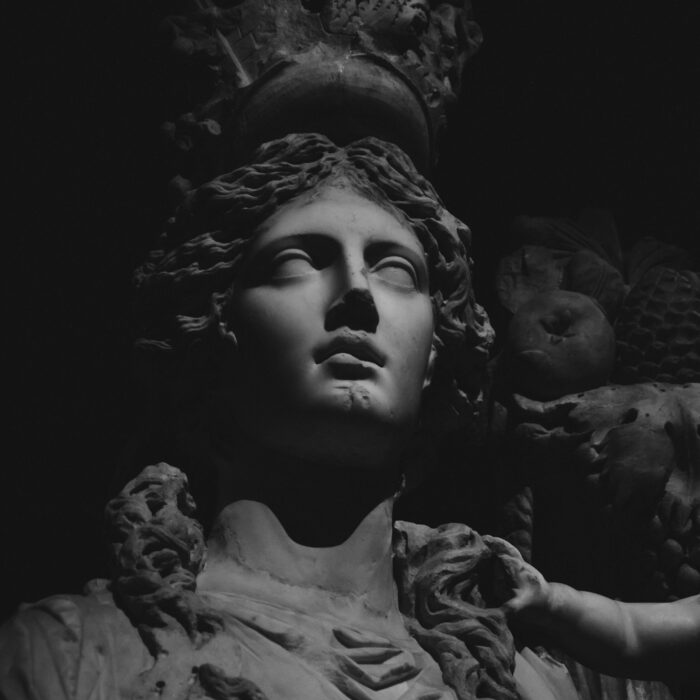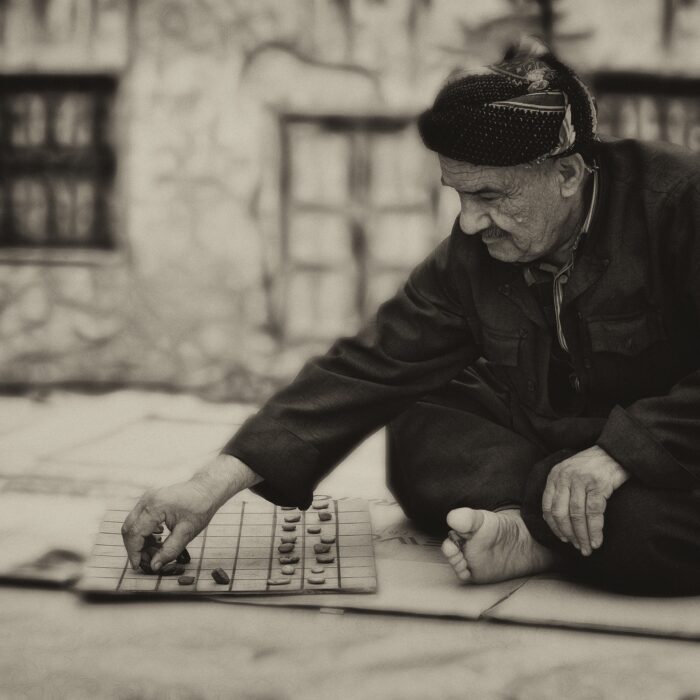You have no items in your cart. Want to get some nice things?
Go shopping Accustomed to loneliness, I wait, gathering dust, in the breakfront. My mistress’s memory of me has long since faded. She is attended to now by caregivers. I observe them all – the gentle ones and the not-so-gentle. Be careful, I want to cry out. She is fragile.
Accustomed to loneliness, I wait, gathering dust, in the breakfront. My mistress’s memory of me has long since faded. She is attended to now by caregivers. I observe them all – the gentle ones and the not-so-gentle. Be careful, I want to cry out. She is fragile.
A hand reaches in, lifts me, turns me, puts me back. They’re looking for a wine glass to use in the wedding of my mistress’s granddaughter. I have heard that the bride and groom will drink from this special glass. I am excited for the first time in months. Choose me, I want to say. My mistress loves me best.
When I speak of loneliness, it’s because my siblings are gone – three of them broken in careless moments, one stolen, one borrowed and never returned. Our guardian, a gold-nosed decanter, has been turned into a bud vase. That’s why the thought of a new adventure fills me with hope.
They call me Bohemian. But they do not mean I am anti-establishment or unconventional. Rather I am elegant: tinted a roseate glint, with faint etching in a deeper rose all around my girth and a line of gold (faded now, like my mistress) encircling my rim.
I remember my creation: a glowing torch at my birth; a dark-eyed girl gently washing me in a foamy river; a village in Bohemia. I remember the journey with my five siblings and our shapely guardian. I remember a dark hold, and then an unveiling into the light: a gift for my mistress’s wedding.
In my youth, I was used, once a year, in a unique celebration. My mistress filled me with sweet wine and placed me at the centre of a long dining table. After hours of eating and singing, all attention focused on me. My mistress told the children about the prophet Elijah, invisible as air, who would visit and drink from my bowl.
A door opened; a cool breeze stirred the surface of my liquid.
From time to time, my mistress used a different glass for the honour at that annual feast. In those years, when she reached into the breakfront for one of my siblings, or even – a time I will never forget – elevated a water glass to the place of honour, there was something pressing on her mind that distracted her. It happened the first time after her daughter, Alice, left for Japan, never to return, and again after her granddaughter, Stacey, broke her leg ice-skating. Each time, the following year, she came back to me.
I loved her. I still do.
About a year ago, things changed. It started when her son-in-law, Joel, came to visit on a Sunday afternoon. I recognized the sound of his shoes on the parquet, the leather creaking, the air in the room (usually musty, vaguely perfumed) parting to make way for him: a large man, clumsy but kind. His shadow on the breakfront overwhelmed the dust motes, who disbursed in a flurry of anxiety. “There’s nothing to be afraid of,” I soothed them. “He means well.” Joel complained about the cost of his daughter’s upcoming wedding, but in a cheerful way, as if he really didn’t mind. “I need a drink,” he said and took me from the breakfront. “Interesting design. Too bad the rest of the set is gone.”
He filled me with a caramel-coloured liquid, something called (oddly enough) Elijah Craig Bourbon. I hadn’t thought about Elijah in months! Was this the same luminary, the prophet? Joel sat beside my mistress, who sipped her peppermint tea. He spoke to her about the plans for her granddaughter’s wedding.
“I should live so long,” my mistress said. “Can’t they move up the date?”
“It’s only a year away. You’ll be fine. And as beautiful as the bride.” What loyalty! Even after his wife Alice – my mistress’s daughter – left him and moved far away, to Japan, to become (so I heard) a diplomat’s wife, he stayed close to my mistress.
After an hour, Joel got up to leave. But he left me on the tray, empty, alongside the bottle of bourbon. Once the front door closed behind him, my mistress picked up the bottle and, with a shaky hand, filled my bowl to the rim. Then she sipped slowly, smacking her lips.
This became our nightly ritual, at five p.m. Instead of my being used once a year or on special occasions, my mistress and I spent nearly every evening together. Her caregivers, Rosie and Amelia, discussed it softly during the shift change – whether it was wrong for a ninety-year-old lady, who had already suffered a stroke that nearly paralyzed her left side, to drink bourbon every night. She liked to chew a pretzel rod, encrusted with salt, between sips. It wasn’t simply the best part of the day for me, but for her as well.
Sometimes after putting my mistress to bed, Amelia would leave me topsy-turvy to dry in the dish drain. Once she put me in the dishwasher and I nearly shattered. Rosie was more careful – the way she was with my mistress. She washed me tenderly at the kitchen sink, rinsed and dried me, and put me back in the breakfront.
If I’ve given the impression that I’m alone in this breakfront, I must correct it. On the bottom shelf, there are water glasses, stolid and uncomplaining. Then there are the thin champagne glasses, remote and snooty. And in the breakfront’s only drawer, folded linen napkins. They too are used for special occasions.
One evening the son-in-law returned. He came in as my mistress had settled in with her bourbon and her pretzel rod. “What’s this? The salt isn’t good for you, you know that ” he said. “And I don’t think you should be having alcohol every night when you’re taking Plavix and Atorvastatin.” He reeled off those names like the internist he was. “Once in a while, but not every night.” He meant well, but I don’t know. What was the harm? But it wasn’t up to us. The caregivers listened to him. And so I went back to my lonely existence.
The caregivers weren’t supposed to leave my mistress alone – ever – but sometimes they went downstairs to the lobby, or to walk around the block for some air. The living room felt different when my mistress was alone. I always stood straighter on my shelf when I was in charge of her.
Suddenly the door of the breakfront opened. My mistress’s beautiful beaky bird-like face was there, smiling at me. “It’s our time,” she said. She let go of her walker with one hand and grabbed me. Across the room, I saw the bottle on her tray. It seemed so far away. Don’t, I wanted to say to her. Put me down somewhere, anywhere. You need both hands on the walker, and even then, you are unsteady, you need Rosie to support you. Please, you could … but before I could formulate the thought, she fell. She held me aloft even as she went down. When Rosie found her, she was gripping me for dear life.
I’m not sure how Rosie managed to keep it from Joel, but she did. In near-hysteria, she called a friend, who called another friend, who sent an off-duty EMT to check on my mistress. My mistress was shaken up, her thin skin was bruised purple, but miraculously her bones were not broken. After a brief period of agitation, her blood pressure returned to normal.
Rosie put me back in the breakfront, in a corner in the back. There was a tiny crack on my rim from my ordeal, but it only bothered me when the weather was bad. For better or for worse, it didn’t matter. No one looked at me any longer.
When Joel came the next week to visit, Rosie kept my mistress in her wheelchair covered with a blanket, so he couldn’t see the explosion of purplish-red across her chest. He never knew I’m convinced, he never knew. Even if he had, he was a kind man; he never would have blamed me. I’m sure of it, no matter what happened next.
*
My mistress went back to sipping peppermint tea in a blue porcelain mug Alice sent from Japan. I remember when the mug arrived, wrapped in red and gold paper, which my mistress folded carefully, saving it to reuse. The mug was tall and stately – like my mistress – and was unusual in that it had a lid with a golden knob in the centre. The lid would keep the tea from cooling off between sips. But my mistress didn’t like her tea hot. She was always blowing on it and sometimes even dipped an ice cube in the tea to cool it off. Had I the wherewithal to buy my mistress a present I would have known not to buy her that mug. I was not surprised when, the first time she used it, a single tear slid down her cheek. No one else noticed – not Joel, not Stacey, who were both visiting for Mother’s Day. But I could tell my mistress was thinking how little her own daughter knew her. Perhaps she wondered whether she would ever see Alice again. And so I learned that there are different kinds of carelessness, but even the most minor kind can cut.
Even though the tea mug caused her pain, my mistress continued to use it. Naturally I thought the mug would come to live with us in the breakfront, but instead, it took its place on an ironing board in a corner of the living room, which in the past doubled as a sideboard when there were enough dinner guests to require it. Now the annual feast had dwindled to just five and the ironing board must have felt itself in limbo, rarely used yet never put away either. Even when the ironing board was used for ironing, say if one of the shy linen napkins needed a once-over, the mug-with-the-lid remained there, sharing space with the spray bottle and the iron, silent amid all the busyness – whether because it couldn’t speak our language or because its own nature made it so.
*
You’re probably wondering why I call my mistress simply “mistress” and not her given name, Hazel. I have nothing against the name Hazel, mind you, or any other name. If you asked me, what is your favourite name, your most beloved name, your most exalted name, the most extraordinary name you have ever heard, the answer would be “Hazel.” My love of the name – before I even knew there was such a thing as a name – was nurtured from my earliest days in Bohemia, under the shade of a hazelnut tree, which shed its moon-white blossoms on the river of my birth.
Why do people have names? My siblings and I and even my guardian have none; the champagne flutes, in all their superiority, have none; the kindest of napkins have none. I didn’t think my mistress needed a name either. Yet from the family’s conversations at those annual dinners, I have learned that names have meanings. For example, “Moses” means “to pull out of water” because he, like me, was pulled from the waters of a river. My mistress’s name “Hazel” means “God sees.” That I can relate to, without even knowing what “God” is. I, too, see the world – in my case, through the glass of the breakfront and sometimes, even through the glass of the television screen. Sometimes, perhaps like God, what I see is too terrible to contemplate. But I am powerless to do anything about it.
*
Finally, the day comes that everyone – my mistress, Joel, and above all, my mistress’s granddaughter Stacey, the ice-skater and bride-to-be – has been waiting for. “You made it!” Joel says to my mistress triumphantly as he comes to get her. “You look like a queen.” As Rosie gathers my mistress’s belongings (her silver mesh handbag and Pashmina shawl), Joel opens the door to the breakfront and reaches for me. I can hardly believe it! He remembers! He picks me up, runs a soft finger around my rim where the crack is, and sighs deeply. But he doesn’t put me back! Instead, he bends and takes an ecru napkin from the breakfront drawer. This napkin is one of the shy ones, folded unto herself. I’m sure she’d rather stay in the drawer. Not me! I am giddy with joy. In addition to the honour of being chosen, I want to watch over my mistress. She rarely goes outside. Who will protect her from the elements? Everyone’s mind (even Joel’s, once he has locked the apartment door behind us) is elsewhere.
Something strange happens next. As if to protect me from the elements, while we wait for the elevator, Joel wraps me in the napkin so only my bowl, the depth of my being, remains exposed. I’m confused; how will the bride and groom drink from me?
My mistress, who hasn’t left the apartment in nearly a year, is pushed in her wheelchair to the synagogue across the street. Joel carries me and the ecru napkin, locked in a clumsy embrace, in the silk-lined pocket of his dark-blue suit.
In the garden adjoining the synagogue, under a peach tree, the guests gather – some fifty in all. My mistress, in her wheelchair, doesn’t seem to realize I’m there. She may not even realize she is there. But as Joel removes me and the napkin from his pocket I breathe in the peach-scented air like a tonic. I am immensely happy. The bride is radiant; the groom’s face shines like polished glass. Alice has sent a telegram from Japan, which is read so softly, I don’t think my mistress hears it.
But then just as the cantor, a young woman, begins chanting, there’s some commotion and a middle-aged woman appears whom none of us has seen before. That’s what we think at first. But then everyone seems to realize that it’s Alice, whom no one – perhaps least of all, Alice herself – expected to attend. She has cut her hair short and dyed it blue-black with a snowy-white streak in the front and wears a beautiful long silk flowered frock, the same blue as the mug she gave my mistress. She goes to my mistress and puts her hand on her shoulder but my mistress, her eyes filmed over, looks up at this stranger, unseeing. She reaches up her hand, whether to place it atop the stranger’s hand or to push the stranger’s hand away, I can’t tell. But in the middle of the gesture, whether from weakness or a change of heart, my mistress’s hand drops back in her lap, her head droops. Am I the only one to see it? I don’t see Joel’s face, but I feel for him, feel for all of them, at this moment.
The young couple weeps during their vows. Finally, the bearded rabbi, who is surely as ancient as my mistress, looks at her. Her cheeks are etched with a roseate glow, her eyes glint with tears.
“Now, we are almost done. In the midst of joy, we remember sadness, remember this broken world and our obligation to repair it. And so, as at every Jewish wedding ceremony, the groom will break a glass.”
Trembling now with fear, I am laid on the ground. How could I have been so blind? The napkin, for her part, comforts me at this moment. She will tell my story, she whispers, holding me close until my trembling stops. But the napkin will be laundered and ironed and returned to a drawer in the breakfront, and the drawer will be closed. Who will watch over my mistress?
I know I will see her again. I will see the dark-eyed girl again, too, with her gentle hands.
The impact is not gentle but a dark shattering, loud as thunder, followed by shouting – a gabble of voices.
The moment passes. And then, like those annual celebrations, a cool breeze ripples the air, and like my birth, a glowing torch heralds my arrival.

About Nancy Ludmerer
Nancy Ludmerer has stories in Kenyon Review, Cimarron Review, Green Mountains Review, North American Review, Sou’wester, New Orleans Review, and Masters Review’s “New Voices” series. Her essay “Kritios Boy” (Literal Latte) was named a notable essay in Best American Essays 2014 and her flash fiction “First Night” (River Styx) is reprinted in Best Small Fictions 2016. She is a three-time Pushcart Prize nominee. She practices law and lives in New York City with her husband Malcolm and cat Sandy, a rescue from Superstorm Sandy.




